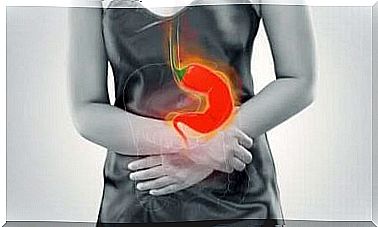Allergy To Ginger: How To Recognize It?

Spice allergies are uncommon, yet several cases of allergy to ginger and other similar spices, such as turmeric , have been identified. These reactions are mostly cutaneous or gastrointestinal; only in some cases does an inflammatory state develop.
A food allergy occurs when the body becomes sensitive to a certain substance, as stated in an article published in the journal Pediatrics and International Child Health.
Specifically, lactose and gluten are the main culprits of food intolerance and allergy, but spices can also be possible allergens. How do we recognize ginger allergy?
How to recognize ginger allergy?
Ginger allergy occurs mainly in the intestine. The consumption of this spice can cause intestinal gas, colic and diarrhea.
In some particularly serious cases, anaphylaxis could be triggered, according to the study published in The Journal of Dermatology . However, reactions of this type rarely occur following the consumption of spices.
It could also happen that ginger allergy causes skin manifestations, such as irritation, redness and hives. It could also cause itchy mouth.

Preventing food allergies
A number of measures can be taken to prevent the appearance of food allergies. For example, breast milk feeding up to the first year and complementary feeding from 6 months of age reduces the risk of these autoimmune diseases.
It may seem strange, yet excessive hygiene can cause the body to become hypersensitive in the presence of a foreign, harmless substance. It becomes, therefore, intolerant or allergic. It is therefore advisable to avoid this practice.
Finally, it is advisable to follow a balanced diet, so that the digestive system can receive the different nutrients and get used to metabolizing them. Excluding certain foods from the diet does not necessarily trigger an allergy, but it can promote intolerance.
What to do if you have a ginger allergy?
If you suspect that you have a food allergy, you should go to your specialist (allergist) for a clinical diagnosis. Your doctor will tell you the levels of sensitization and whether you need to eliminate the allergen from your diet or simply moderate your consumption.
Starting from this consultation, it will be necessary to assess the risk of a possible anaphylaxis in case of contact with the allergen. In the case of ginger allergy, this is an extreme and rather rare possibility. Despite this, it is advisable to avoid the consumption of some spices in order to prevent possible gastrointestinal discomfort.

Allergy to ginger, a rare case
Although it is possible to develop an allergy to any substance, in the case of spices this is an infrequent occurrence. Nonetheless, ginger is capable of triggering hypersensitivity reactions in some people. In these cases, it is important to make an early diagnosis in order to avoid complications.
It must be remembered that daily habits can predispose to the development of these conditions. The absence of breastfeeding or an altered intestinal flora, for example, can trigger medium and long-term food allergies and intolerances.
Since this is a chronic disorder, the ideal is to reduce or limit the consumption of ginger. You should probably also avoid other spices from the same family, such as turmeric.
Based on the above, it is advisable to adopt a varied and complete diet from a nutritional point of view. Probiotic supplements can be used to alleviate symptoms; all, it is clear, under the supervision of the doctor.









